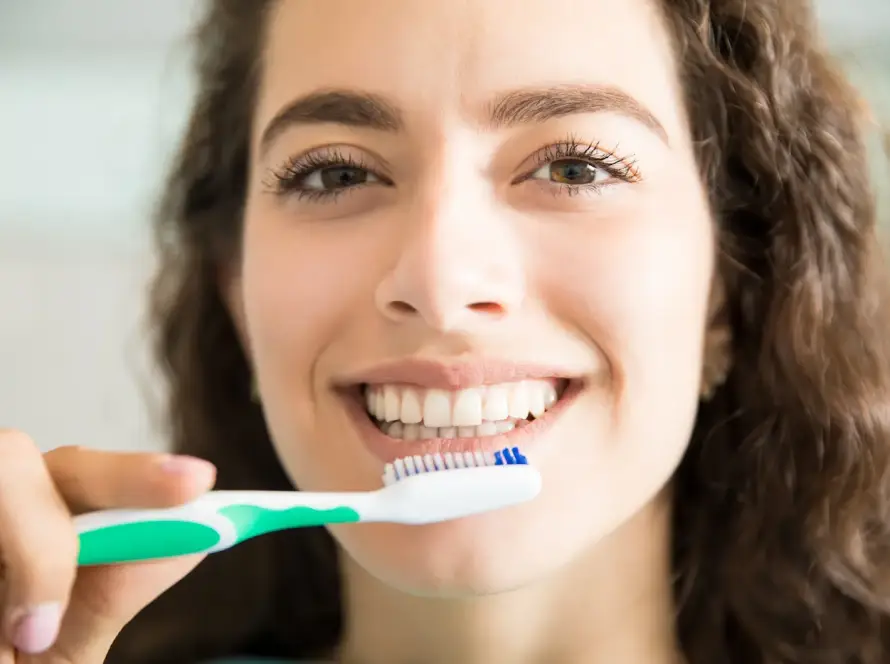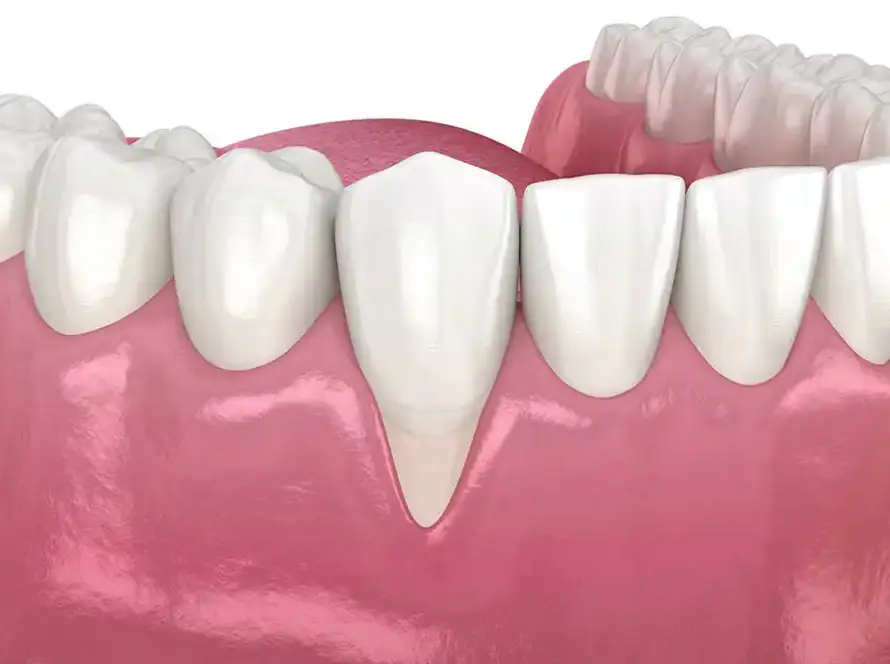Jaw pain is a common condition that affects millions of individuals worldwide. It can range from a mild nuisance to debilitating pain, significantly impacting daily activities such as eating, speaking, and even sleeping. The complexity of the jaw joint and surrounding structures makes diagnosing and treating jaw pain challenging. Understanding the basics of jaw pain involves examining its symptoms, causes, and potential treatment options.
Key Symptoms
Jaw pain can present itself in various forms, and identifying the specific symptoms is crucial for proper diagnosis. Common symptoms include:
- Pain or tenderness in the jaw: This can be localized or spread to the surrounding areas such as the ears, neck, or face.
- Difficulty chewing or opening the mouth: Individuals may experience a significant loss of range of motion.
- Clicking or popping sounds: Audible noises when moving the jaw are often reported.
- Facial swelling: Swelling in the cheeks or around the jaw joint can occur.
Causes
Jaw pain can stem from numerous causes, each requiring different diagnostic approaches. Major causes include:
- Temporomandibular Joint Disorders (TMJ/TMD): Involves dysfunction in the connection between the jaw and skull, often leading to chronic pain.
- Dental Issues: Toothaches, gum disease, and abscesses can refer pain to the jaw area.
- Trauma/Injury: Accidents or impacts to the jaw can result in acute or lasting pain.
- Arthritis: Both osteoarthritis and rheumatoid arthritis can affect the jaw joints.
- Stress and Clenching: High levels of stress may lead to bruxism (teeth grinding), contributing to jaw pain.
Diagnosis
Accurate diagnosis is essential for tailoring effective treatments. Diagnostic tools and techniques include:
- Clinical Examinations: Physical assessment by healthcare professionals.
- Imaging Tests: X-rays, MRIs, or CT scans provide detailed views of the jaw structures.
- Dental Evaluations: Dentists can identify oral issues impacting the jaw.
- Patient History: A thorough review of symptoms and medical history guides the diagnostic process.
Understanding jaw pain through its symptoms, causes, and diagnosis lays the groundwork for addressing this prevalent condition. The following sections will delve deeper into each aspect for a comprehensive overview.
Common Symptoms of Jaw Pain
Jaw pain can manifest in various ways, each indicating different underlying issues. Recognizing these symptoms can assist in early diagnosis and effective treatment.
Types of Pain
- Acute Pain: Sharp or intense pain that often signals injury or acute inflammation.
- Chronic Pain: Persistent or recurring pain, typically indicative of long-term conditions such as arthritis or temporomandibular joint dysfunction (TMJ).
Associated Discomforts
- Stiffness: Difficulty in moving the jaw or feeling a tight sensation.
- Tenderness: Sensitivity to touch on the jaw, face, or neck.
- Swelling: Inflammation in the jaw area, possibly visible externally.
Functional Issues
- Limited Range of Motion: Difficulty in fully opening or closing the mouth.
- Lockjaw: The jaw gets stuck in a position, either closed or open.
- Clicking or Popping: Sounds from the jaw joint, especially when opening or closing the mouth.
Other Symptoms
- Headaches: Often occurring alongside jaw pain, particularly in the temple region.
- Ear Pain: Discomfort in the ear, either due to proximity to the jaw or referred pain.
- Facial Pain: Pain that can spread across the face, particularly if it’s related to nerve issues.
Observational Signs
- Misalignment: The bite feels unusual or teeth do not fit together as they should.
- Tooth Pain: Often confused with jaw pain, it might indicate a more localized dental issue.
- Facial Asymmetry: Visible unevenness in the facial structure due to swelling or muscle spasm.
Miscellaneous
- Difficulty Chewing: Pain that aggravates with the movement needed for chewing.
- Tinnitus: Ringing in the ears that coincides with jaw pain, indicating potential TMJ issues.
- Throat Pain: Irritation or pain extending to the throat, possibly due to referred pain or swelling.
These symptoms offer critical insights into the nature and possible causes of jaw pain, aiding effective diagnosis and treatment.
Primary Causes of Jaw Pain
Jaw pain is a common complaint that can arise from various underlying conditions or behaviors affecting the jaw, temporomandibular joint (TMJ), and surrounding muscles.
Temporomandibular Joint Disorders (TMD)
TMD refers to a group of conditions that cause pain and dysfunction in the jaw joint and muscles controlling the jaw movement. Contributing factors include arthritis, jaw injury, or muscle fatigue from overuse of the jaw muscles. Common symptoms may include:
- Pain and tenderness in the jaw.
- Difficulty or discomfort with chewing.
- Clicking, popping, or grating sensations in the jaw.
Dental Issues
Dental problems are a prevalent source of jaw pain. Conditions such as tooth cavities, gum disease, or tooth abscesses can cause significant discomfort that radiates to the jaw. Symptoms indicative of dental issues might include:
- Persistent toothache.
- Swollen or bleeding gums.
- Sensitivity to hot or cold temperatures.
Bruxism (Teeth Grinding)
Bruxism involves the involuntary grinding or clenching of teeth, often during sleep. This condition can lead to severe jaw pain, tooth damage, and temporomandibular joint disorders. Identifiable symptoms of bruxism include:
- Sore jaw muscles, especially in the morning.
- Worn-down teeth.
- Frequent headaches or earaches.
Trauma or Injury
Traumatic injuries to the jaw can cause acute or chronic pain. These injuries might occur from accidents, falls, sports-related impacts, or physical altercations. Symptoms to look out for include:
- Swelling around the jaw area.
- Bruising or deformities.
- Difficulty opening or closing the mouth.
Arthritis
Arthritis affecting the temporomandibular joint, including osteoarthritis and rheumatoid arthritis, can result in significant jaw pain and stiffness. Symptoms of arthritis in the jaw might present as:
- Stiffness or limited movement in the jaw joint.
- Pain that worsens with jaw activity.
- Swelling around the affected joint.
Sinusitis
Inflammation or infection of the sinus cavities, known as sinusitis, can lead to referred pain in the jaw. This condition is often associated with:
- Nasal congestion and discharge.
- Facial pressure or pain.
- Fever and fatigue.
Addressing jaw pain effectively necessitates understanding its primary cause to determine the appropriate course of treatment.
Dental Issues Leading to Jaw Pain
Jaw pain often stems from various dental issues. One common cause is TMD (Temporomandibular Joint Disorder). This condition affects the joint connecting the jaw to the skull, leading to pain and discomfort.
Bruxism, or teeth grinding, exerts excessive pressure on the jaw, often resulting in pain. Many sufferers are not aware they grind their teeth, particularly during sleep. This condition not only affects the jaw but can also lead to tooth damage and headaches.
Malocclusion refers to improper alignment of the teeth and jaw. This misalignment places undue stress on the jaw muscles and joints, contributing to pain. Corrective orthodontic procedures, such as braces, are often necessary to address malocclusion and alleviate symptoms.
Infections and abscesses in the mouth can also contribute to jaw pain. Dental abscesses can cause swelling and intense pain, which may radiate to the jaw. Treatment typically involves antibiotics or root canal therapy to remove the infection.
Gum disease (Periodontitis) is another significant contributor. As bacteria infiltrates the gums, it can cause inflammation and pain extending to the jaw. Proper oral hygiene and timely dental check-ups are essential to prevent and manage gum disease.
Impacted teeth, particularly wisdom teeth, can exert pressure on adjacent teeth and the jawbone. This results in pain that can range from mild discomfort to severe. Surgical extraction is often the recommended treatment for impacted teeth to relieve the associated pain.
Cavities, if left untreated, can progress to cause severe tooth decay. This decay can infect the tooth pulp, leading to abscesses and jaw pain. Timely dental fillings and treatments are crucial to prevent tooth decay from escalating.
Orthodontic appliances, such as braces or retainers, may also cause temporary jaw pain as the teeth and jaw adapt to the correction. Regular consultations with an orthodontist ensure the appliances are adjusted correctly to minimize discomfort.
Effective dental care is paramount. Regular check-ups help identify potential issues before they escalate, providing timely intervention to mitigate jaw pain.
Jaw Pain Related to Jaw Injuries
Jaw injuries can cause significant discomfort and functional impairments. Various types of trauma can lead to jaw pain, each presenting with distinct symptoms and requiring specific interventions. Understanding the nature of these injuries is crucial for effective management.
Types of Jaw Injuries
- Fractures:
- These are breaks in the jawbone, either in the mandible (lower jaw) or maxilla (upper jaw).
- Symptoms include severe pain, swelling, difficulty in chewing or speaking, and misalignment of teeth.
- Dislocations:
- Dislocations occur when the jawbone is forced out of its normal position.
- It often results in an inability to close the mouth properly, accompanied by intense pain and swelling.
- Soft Tissue Injuries:
- Damage to the muscles, ligaments, or tendons around the jaw can cause significant pain.
- Such injuries commonly result from direct impact or overuse of the jaw muscles.
Causes of Jaw Injuries
- Sports Injuries:
- Contact sports like football, hockey, and boxing have high risks of jaw trauma.
- Proper protective gear is essential to minimize injury risks.
- Accidents:
- Car accidents, falls, and workplace mishaps can lead to severe jaw injuries.
- The force of impact often dictates the severity of the injury.
- Assaults:
- Physical altercations where blunt force is applied to the face can result in fractures or dislocations.
Diagnostic Procedures
- X-rays:
- Standard imaging to identify fractures and dislocations.
- CT Scans:
- Detailed imaging for more complex injuries, providing a 3D view of the jaw structure.
- MRI:
- MRI scans are useful for evaluating soft tissue damage.
Treatment Options
- Medications:
- Pain relievers and anti-inflammatory drugs alleviate pain and reduce swelling.
- Immobilization:
- Devices such as arch bars or chin braces stabilize the jaw.
- Surgical Intervention:
- Severe fractures or dislocations may require surgical correction.
- Procedures include internal fixation using plates and screws.
- Physical Therapy:
- Helps regain strength and flexibility in the jaw muscles post-injury.
Preventive Measures
- Protective Gear:
- Utilizing mouth guards and helmets during sports can prevent jaw injuries.
- Seatbelts:
- Wearing seatbelts reduces the risk of jaw injuries in car accidents.
- Safe Practices:
- Adopting safety measures at the workplace and home can decrease injury risks.
Understanding and addressing jaw injuries promptly ensures better outcomes and reduces long-term complications associated with jaw pain. Proper diagnosis and treatment tailored to the type of injury are crucial.
Jaw Pain Linked to Medical Conditions
Jaw pain can often be associated with various medical conditions that extend beyond dental issues. Understanding these associations is crucial for accurate diagnosis and effective treatment.
Temporomandibular Joint Disorders (TMJD)
Jaw pain is commonly linked to Temporomandibular Joint Disorders (TMJD). This condition affects the joint connecting the jaw to the skull, causing:
- Pain in the jaw or face
- Difficulty in moving the jaw
- Clicking or popping sounds during jaw movement
Dental Issues
Dental problems such as cavities, gum disease, and dental abscesses can lead to significant jaw pain. Symptoms often include:
- Persistent toothache
- Swelling around the affected tooth
- Pain that radiates to the jaw
Sinus Infections
Sinus infections can cause referred pain to the jaw. When sinuses become inflamed, they can exert pressure on the jaw muscles, resulting in:
- Tenderness around the forehead and cheeks
- Nasal congestion
- Pain that intensifies when bending forward
Arthritis
Arthritis, particularly osteoarthritis and rheumatoid arthritis, can impact the temporomandibular joint. These conditions may lead to:
- Chronic jaw pain
- Reduced jaw mobility
- Swelling and tenderness
Neurological Conditions
Certain neurological conditions such as trigeminal neuralgia can cause severe jaw pain. This condition affects the trigeminal nerve and leads to:
- Sudden sharp jaw or facial pain
- Pain that may be triggered by simple actions like chewing or speaking
- Episodes of pain lasting from seconds to minutes
Heart Conditions
Jaw pain can be an indicator of more serious underlying health issues like heart conditions, particularly during a heart attack. Signs to watch for include:
- Pain spreading to the jaw, neck, or back
- Chest discomfort
- Shortness of breath
Sleep Disorders
Sleep apnea is another condition linked to jaw pain. People suffering from sleep apnea may experience:
- Morning headaches
- Jaw discomfort due to bruxism (teeth grinding) during sleep
- Fatigue owing to disrupted sleep
Infections
Infections such as osteomyelitis, which affects the bone, can lead to jaw pain. Symptoms include:
- Fever
- Swelling and redness over the jawbone
- Pain that worsens with movement
Mood and Anxiety Disorders
Psychological conditions like anxiety and depression can also contribute to jaw pain. This is often due to muscle tension resulting from stress, leading to:
- Jaw clenching
- Bruxism
- Persistent facial muscle tightness
Jaw Pain and Stress: What’s the Connection?
Jaw pain, often associated with temporomandibular joint (TMJ) disorders, can be significantly affected by stress. Stress is a common factor that exacerbates jaw pain, and understanding this connection can be crucial for effective management.
Stress-Induced Clenching and Grinding
- Bruxism: Stress commonly leads to bruxism, which is the involuntary clenching or grinding of teeth. This action exerts significant pressure on the jaw muscles, leading to pain and discomfort.
- Muscle Tension: High stress levels can cause increased tension in the jaw muscles. Muscle tension is a direct contributor to TMJ pain, often resulting in spasms or contractions.
- Overuse: Continuous clenching and grinding cause overuse of the jaw muscles, exacerbating pain.
Impact on Jaw Functional Activities
- Chewing Difficulties: Stress-induced bruxism wears down the teeth, causing difficulties and pain while chewing.
- Speaking Challenges: Increased muscle tension can make speaking difficult and painful, affecting daily communication.
- Pain Propagation: Due to stress, the pain can radiate to other areas, including the neck, shoulders, and head.
Psychological Factors
- Anxiety and Depression: Higher stress levels are often associated with anxiety and depression, both of which can amplify the perception of pain.
- Pain Sensitization: Chronic stress can lead to a condition known as central sensitization, where the central nervous system becomes more sensitive to pain signals, worsening jaw pain.
Stress Management Techniques
Implementing effective stress management techniques can mitigate jaw pain:
- Relaxation Practices: Techniques such as deep breathing, yoga, and meditation can significantly reduce stress and relax jaw muscles.
- Physical Therapy: Gentle exercises and stretches designed by a physical therapist can help alleviate tension in the jaw muscles.
- Cognitive Behavioral Therapy (CBT): CBT can address underlying stress and anxiety, helping patients manage their reactions to stressors.
Lifestyle Adjustments
To further manage stress-related jaw pain:
- Sleep Hygiene: Ensuring adequate, restful sleep can alleviate stress and, consequently, jaw pain.
- Healthy Diet: A balanced diet can improve overall wellness, reducing stress impact.
- Regular Exercise: Physical activity releases endorphins, natural stress relievers.
Understanding the connection between jaw pain and stress is vital for comprehensive treatment. Effective management combines addressing both physical symptoms and psychological stressors.
Diagnosis: How is Jaw Pain Assessed?
Diagnosis of jaw pain requires a multifaceted approach to ensure a comprehensive evaluation. The assessment process generally involves several stages and diagnostic tools to pinpoint the exact cause of the discomfort.
- Medical History: The first step in the diagnosis process involves gathering a detailed medical history from the patient. This includes:
- Onset, duration, and characteristics of the pain.
- Any recent injuries or trauma to the jaw.
- History of dental or orthodontic treatments.
- Presence of any systemic conditions that may contribute to jaw pain, such as arthritis or fibromyalgia.
- Physical Examination:
- Inspection: The healthcare provider examines the jaw and surrounding areas for signs of swelling, redness, or bruising.
- Palpation: Gentle pressing on the jaw, face, and neck to identify tender points and muscle spasms.
- Range of Motion: Assessment of jaw movement to evaluate any limitations or abnormalities.
- Auscultation: Listening for sounds like popping or clicking during jaw movement, which may indicate temporomandibular joint disorders (TMJ).
- Imaging Studies:
- X-rays: Used to visualize bone structures and identify fractures or dislocations.
- MRI (Magnetic Resonance Imaging): Provides detailed images of soft tissues, including muscles and ligaments.
- CT (Computed Tomography) Scan: Offers a more comprehensive view of the bone structure and any underlying abnormalities.
- Laboratory Tests: Blood tests may be performed to rule out infections, autoimmune diseases, or metabolic conditions that could contribute to jaw pain.
- Dental Examination: A thorough dental check-up may be required to detect issues such as:
- Tooth decay.
- Abscesses.
- Malocclusion (misalignment of teeth).
- Specialized Tests:
- Jaw Tracking and Electromyography: These tests help in evaluating the functionality and movement of the jaw muscles.
- Orthopantomogram (OPG): A panoramic X-ray of the jaws that provides a broad view of the mandible and maxilla (upper jaw).
- Referral to Specialists: In certain cases, referral to specialists such as oral surgeons, rheumatologists, or neurologists may be necessary for further evaluation.
By considering all these aspects, healthcare providers can arrive at an accurate diagnosis, ensuring that the subsequent treatment plan is both effective and tailored to the patient’s specific needs.
Home Remedies for Immediate Relief
Jaw pain can be uncomfortable and may disrupt daily activities. Immediate relief can often be found through simple home remedies. These remedies may help alleviate pain and discomfort temporarily.
Cold Compress
Applying a cold compress can reduce swelling and numb the pain. Wrap an ice pack in a thin towel and apply it to the affected area for 15-20 minutes. Repeat this process every few hours.
Warm Compress
Warm compresses help relax tight muscles and improve blood circulation in the jaw area. Soak a cloth in warm water, wring it out, and place it over the jaw for about 20 minutes. Ensure the temperature is comfortable and not too hot.
Over-the-Counter Pain Relievers
Non-prescription pain relievers like ibuprofen or acetaminophen can help manage pain and reduce inflammation. Follow the dosage instructions on the packaging and consult a healthcare provider if uncertain about usage.
Jaw Exercises
Gentle jaw exercises can help stretch and strengthen the jaw muscles. Examples include:
- Open and close the mouth slowly and gently.
- Move the jaw from side to side without straining.
- Perform these exercises several times a day.
Stress Management Techniques
Stress can increase jaw pain. Relaxation techniques such as deep breathing, meditation, and yoga can reduce stress levels and alleviate muscle tension.
Hydration and Diet
Stay hydrated and consume a soft diet to minimize jaw strain. Avoid hard, chewy, or sticky foods that may exacerbate the pain. Opt for smoothies, soups, and yogurt instead.
Maintaining Good Posture
Proper posture can prevent jaw pain. Ensure the head and neck are aligned and back straight, especially when working at a desk or using a phone.
Avoid Clenching and Grinding
Jaw clenching and teeth grinding can worsen pain. Practice keeping the lips closed and teeth apart, and consider using a mouthguard at night if needed.
Massage
Gently massaging the jaw muscles can reduce tension and pain. Use the fingers to apply soft, circular motions to the jaw and temples.
Implementing these home remedies can provide temporary relief from jaw pain while awaiting further treatment. Always consult a healthcare provider for persistent or severe symptoms.
Medical and Surgical Treatments for Chronic Jaw Pain
Chronic jaw pain can severely impact an individual’s quality of life, necessitating a range of medical and surgical treatments. Healthcare professionals tailor interventions based on the underlying cause, severity, and the patient’s overall health.
Medical Treatments:
- Medications:
- Nonsteroidal Anti-Inflammatory Drugs (NSAIDs): Medications such as ibuprofen and naproxen can reduce pain and inflammation.
- Muscle Relaxants: These may be prescribed to alleviate muscle tension and spasms.
- Corticosteroids: These can be injected directly into the jaw joint to reduce severe inflammation and pain.
- Antidepressants: Low doses of tricyclic antidepressants may help in managing pain and promoting sleep.
- Physical Therapy:
- Jaw Exercises: Specific exercises can improve jaw flexibility, strength, and function.
- Ultrasound Therapy: This treatment uses sound waves to reduce muscle pain and inflammation.
- Laser Therapy: This non-invasive treatment can reduce pain and facilitate tissue repair.
- Occlusal Appliances:
- Mouthguards: Custom-fitted mouthguards or splints can stabilize the jaw and reduce teeth grinding.
- Biteplates: These devices can help redistribute bite forces and relieve pressure on the jaw joint.
Surgical Treatments:
- Arthrocentesis:
- This minimally invasive procedure involves flushing out the joint to remove debris and inflammatory byproducts.
- Arthroscopy:
- A tiny camera is inserted into the jaw joint, allowing the surgeon to diagnose and treat issues such as cartilage damage and inflammation.
- Open-Joint Surgery:
- This involves a more extensive procedure to repair or replace the jaw joint. It may include removing bony growths, repositioning the joint, or replacing parts with artificial implants.
Orthodontic Treatments:
- Braces:
- Misaligned teeth can cause jaw pain, and orthodontic braces can correct these issues over time.
- Corrective Appliances:
- Devices such as palate expanders and retainers may be used to correct structural abnormalities and reduce pain.
Botox Injections:
- Botulinum toxin can be injected into the jaw muscles to reduce muscle spasms and relieve chronic pain.
Alternative Medical Treatments:
- Acupuncture and biofeedback are sometimes used alongside conventional treatments to manage chronic pain through holistic approaches.
Managing chronic jaw pain requires a multidisciplinary approach. A combination of medical and surgical interventions can offer significant relief and improve function.
When to See a Specialist
Identifying when to consult a specialist for jaw pain is crucial for timely and effective treatment. Persistent or severe jaw pain can be indicative of underlying health issues that require specialized diagnosis and management. Here are key indicators for when to seek specialist care:
- Chronic Pain
- If jaw pain persists for more than a few days without relief from over-the-counter pain medications or home remedies.
- Severe Discomfort
- Sudden, intense pain that significantly impacts daily activities such as eating, speaking, or sleeping.
- Swelling and Inflammation
- Noticeable swelling, redness, or warmth around the jaw area that does not subside.
- Limited Jaw Movement
- Difficulty or inability to open or close the mouth fully, often accompanied by a clicking or popping sound.
- Associated Symptoms
- Presence of headaches, earaches, tinnitus, or dizziness in conjunction with jaw pain.
- Fever or Infection Signs
- Accompanying symptoms of infection like fever, chills, or pus discharge near the jaw area.
- Injury or Trauma
- Jaw pain that follows an incident involving injury or trauma to the face, head, or neck.
Types of Specialists
Different specialists may be consulted depending on the underlying cause of jaw pain:
- Dentists and Oral Surgeons
- For issues related to dental health, such as tooth decay, gum disease, or impacted teeth.
- Orthodontists
- For structural and alignment issues within the jaw and teeth configuration.
- ENT (Ear, Nose, and Throat) Doctors
- For conditions involving the ears, nasal passages, and throat that may impact the jaw.
- Rheumatologists
- For inflammatory conditions like arthritis that could affect the jaw joints.
- Neurologists
- For nerve-related pain or conditions such as trigeminal neuralgia.
Prior to the Appointment
Patients should prepare detailed descriptions of their symptoms, including:
- Onset, duration, and intensity of the pain.
- Any known triggers that exacerbate or alleviate the pain.
- Previous treatments attempted and their outcomes.
- Overall medical history and any concurrent health issues.
Diagnostic Procedures
Specialists may employ various diagnostic tools to identify the root cause of jaw pain, including:
- Imaging Tests
- X-rays, MRI, or CT scans to examine bone structure, joint abnormalities, and tissue conditions.
- Blood Tests
- To detect infections, inflammatory markers, or autoimmune conditions.
- Dental Examinations
- Comprehensive oral exams to check for dental causes like cavities, abscesses, or misalignment.
Prompt and accurate diagnosis by a specialist ensures targeted treatments and can prevent complications, significantly improving patient outcomes.
Prevention Tips for Avoiding Jaw Pain
Maintaining optimal jaw health involves adopting certain preventive measures to minimize the risk of discomfort or injury. Here are some practical tips to avoid jaw pain:
Proper Jaw Exercises
Regular jaw exercises can strengthen the muscles around the jaw and improve joint function. Consider these:
- Jaw Stretch: Slowly open and close the mouth to its natural range, avoiding any forced stretching.
- Resistance Training: Use thumbs to apply mild resistance while gently opening the mouth, enhancing muscle strength.
- Side-to-Side Movements: Move the jaw from side to side to maintain flexibility and motion range.
Avoiding Overuse
Overuse can strain the jaw muscles and joints. Limit these activities:
- Chewing Gum: Excessive gum chewing can lead to muscle fatigue.
- Hard Foods: Avoid habitual consumption of tough or chewy foods that can stress the jaw.
Posture and Ergonomics
Poor posture can contribute to jaw pain. Maintain proper alignment with these tips:
- Workstation Ergonomics: Ensure the computer screen is at eye level and the chair supports the lower back to prevent slouching.
- Sleeping Position: Sleep on the back with a supportive pillow to keep the spine and neck aligned.
Stress Management
Stress often leads to jaw clenching and teeth grinding, known as bruxism. Adopt stress-relieving practices:
- Relaxation Techniques: Engage in yoga, meditation, or deep-breathing exercises to reduce overall stress levels.
- Night Guard: Use a custom-fitted night guard if grinding occurs during sleep.
Regular Dental Check-ups
Routine visits to the dentist help in early detection and prevention of jaw-related issues. Dental professionals can:
“Identify early signs of bruxism or other misalignments and suggest appropriate interventions.”
Healthy Lifestyle Choices
General health significantly impacts jaw function. Maintain these practices:
- Balanced Diet: Ensure a diet rich in vitamins and minerals to support muscle and bone health.
- Regular Exercise: Include physical activity to enhance overall body strength and reduce tension.
By integrating these preventive strategies, individuals can effectively minimize the risk of jaw pain and maintain optimal jaw health.
Impact of Lifestyle Choices on Jaw Health
Lifestyle choices significantly influence jaw health, with various factors contributing to either the enhancement or deterioration of the jaw’s functional state. Understanding these contributing elements is crucial for maintaining optimal jaw function and mitigating pain associated with Temporomandibular Joint (TMJ) disorders.
Stress Management
Stress often leads to muscle tension in the neck and jaw area. Common stress-related behaviors include:
- Teeth Grinding (Bruxism): Frequently occurs during sleep, causing excessive wear on teeth and jaw muscles.
- Jaw Clenching: Can happen subconsciously during the day, leading to stress-related jaw pain.
Diet and Nutrition
A nutritionally balanced diet aids in maintaining healthy bones and muscles, including those in the jaw:
- Calcium and Vitamin D: Essential for bone health.
- Avoidance of Hard Foods: Chewing hard foods can strain the jaw muscles and joints.
Posture
Poor posture affects the alignment of the head, neck, and jaw:
- Ergonomic Workstations: Promoting good posture can prevent undue strain on the jaw.
- Regular Breaks: Reducing time spent in sedentary positions helps in alleviating muscle tension.
Habits and Practices
Certain habits can negatively impact jaw health:
- Chewing Gum: Frequent gum chewing strains the jaw muscles.
- Nail Biting & Other Oral Fixations: Exert unnecessary pressure on the jaw.
Physical Activity and Exercise
Regular physical activity contributes to overall musculoskeletal health:
- Jaw Strengthening Exercises: Targeted exercises help in maintaining the jaw’s functional capacity.
- Relaxation Techniques: Practices like yoga and meditation can reduce overall muscle tension, including the jaw.
Oral Hygiene
Maintaining excellent oral hygiene is vital to jaw health:
- Regular Dental Check-Ups: Ensures early detection of issues like misalignment or dental decay.
- Proper Tooth Brushing and Flossing: Prevents infections that can affect the jawbone and adjacent structures.
Avoidance of Harmful Substances
Certain substances can adversely affect jaw health:
- Tobacco Use: Can lead to gum disease and bone loss that impacts the jaw.
- Excessive Alcohol Consumption: Contributes to dehydration, affecting muscle function.
By making informed lifestyle choices, individuals can play a proactive role in preserving jaw health and minimizing associated pain and dysfunction.















